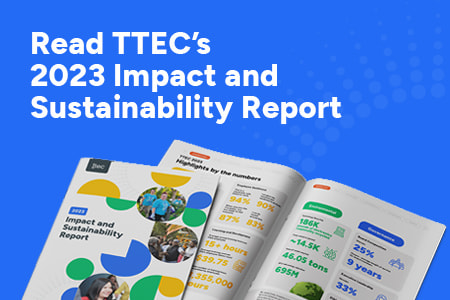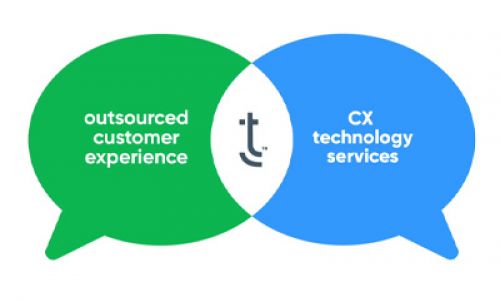The novel COVID-19 virus has exposed the fragility of everyday life, as well as the systems that run it. As the pandemic effectively puts a hold on many industries like travel, retail, and entertainment, the day-to-day function of state and local governments must continue. These offices are not only juggling incredible volumes of calls, unemployment claims, and COVID information, but are also trying to keep up with normal activity of federal, state, and local agencies.
For example, incoming surge volume is one of the biggest burdens to government agencies. With millions of people filing for unemployment benefits nationwide, many state offices find themselves overwhelmed with a case backlog of a month or more. And unemployment is just one example. State public health departments, administrative services, and other agencies are seeing significant volume surges, just to name a few. At the same time, daily operations must still go on to keep states operating as normally as possible.
How can government agencies successfully manage today and in the future? We’ve outlined a few key steps organizations can take to be resilient: Enable work-from-home operations at scale; be proactive with communications via messaging; and plan for a new tomorrow.
Ramp up associates safely and at scale from home
The coronavirus situation has significantly accelerated the work-from-home discussion. Previous objections about security and professionalism have been largely overcome, and costs have come down with new technologies and ways of doing business.
Government organizations can tap into a virtual workforce to both increase their number of agents and hire from a broader pool of skills during the surge in citizen questions. A diverse and large pool of associates can be quickly ramped up or down depending on fluctuations and immediate need. Those confined by stay-at-home orders can still provide great experiences to fellow citizens from the safety of their homes. Secure, cloud-based infrastructure and thoroughly vetted agents can help ease the burden of traditional hotlines and service departments.
Working with a proven government partner with security certifications improves the speed with which operations can move to work-from-home.
Agencies use messaging for proactive outreach
The general population wants action on behalf of their well-being and needs. Government agencies are in priority mode to get information out as quickly as possible to citizens, and the information must be both informative and reliable.
Voice systems can only handle so much. This had led some state and local government agencies to reach out to citizens via (opt-in) text message regarding information about stay-at-home orders, tax and stimulus information, health updates, and more. It’s not always the best news, but it’s key that agencies are constantly reaching out, informing and interacting with the people who are counting on them for information. This type of proactive outreach reduces inbound calls to agencies, whose systems may not be designed for an influx of calls, while improving the speed and efficiency with which citizen communications can occur.
Done safely and securely, messaging is a valuable way to connect with individuals to educate and provide up-to-date FAQs, COVID-19 information, and any other relevant tips. The public is looking for answers and navigating information on your own can be challenging, since you may not know where to find information or the right questions to ask. For example, COVID-19 uncertainty about local testing and long waits have led to frustration and confusion. Instead, proactively reach out to educate and inform citizens with vetted information that reaches them at the right time in their preferred channel.
Plan for the government of tomorrow
The citizen experience will be forever changed by the coronavirus. Bureaucracy may ease a bit as the human side of government operations takes front and center. People helping people with empathy and compassion may be just as important as following process and procedure. Digital tools, work-from-home options, and cloud-based technology will become a mainstay of both public and private interactions with citizens.
The state of the world is anything but normal now, yet it’s the role of government agencies to respond and be proactive as much as possible, even the most challenging of times. It is an incredible task, but offices need to consider the strategic steps necessary to face the current crisis while planning for what comes next.







